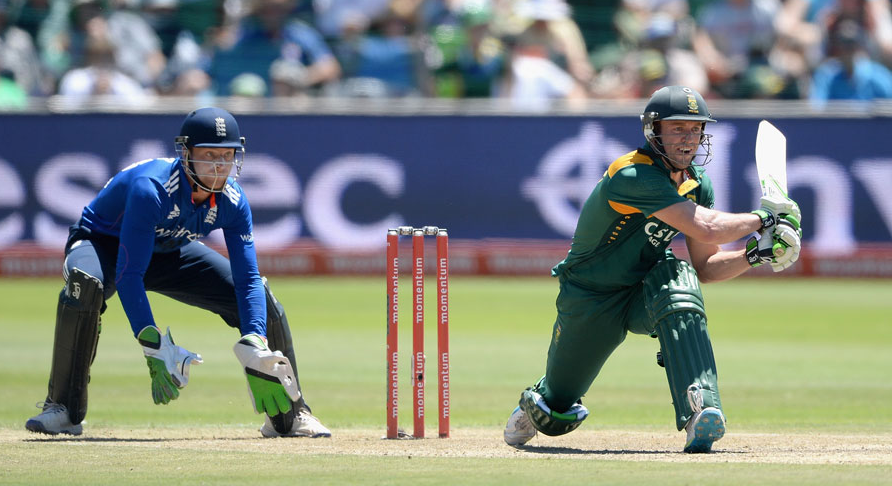AB de Villiers scored 73 as South Africa set England a target of 263 for victory in the second ODI in Port Elizabeth.
The Proteas finished on 262-7 despite at one stage looking set for a total closer to 280. A target of 250-plus has only successfully been chased three times at St. Georges Park so it remains a competitive total on a slow track.
England were on top in the first and last 10 overs of the innings and did well to pull things back at a time when AB de Villiers and JP Duminy threatened to let loose and get close to 300.
South Africa lost De Villiers, Duminy (47) and Rilee Rossouw (11) in the space of three overs, although Duminy’s lbw decision was a poor one by the umpire as replays showed the ball would have comfortably missed the stumps down the leg side.
Rossouw was given out after England reviewed a caught behind. The ball went through his bat and pads and he clearly made contact with the ground, but the tv-umpire decided there was enough evidence that he had also nicked the ball behind, which was brilliantly caught by a one-handed Jos Buttler.
That period between the 40th and 44th over completely halted South Africa’s momentum. It was up to Farhaan Behardien to bat well with the tail and his efforts helped them reach a score they would back themselves to defend, especially with the return of Kagiso Rabada and Kyle Abbott in the bowling department.
A 107-run partnership between De Villiers and Duminy gave South Africa the advantage in the middle overs after two partnerships in the forties were broken by England to keep them in the game.
It was a tough start for Quinton de Kock and Hashim Amla who had to contend with some good England bowling which made it difficult to get the ball away. De Kock and Faf du Plessis (46) found their feet after about seven overs and pushed the run-rate up from around two runs an over to more than five.
Du Plessis got a leading edge off Adil Rashid while De Kock unsuccessfully reviewed a lbw decision against him. De Villiers and Duminy stabilised the innings before the mini-collapse towards the end threatened to leave them well short of a competitive total.
Picture: Getty







